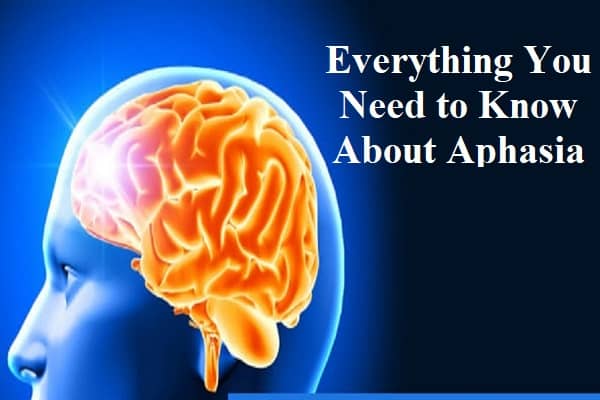Aphasia is a neurological disorder that affects the ability to communicate. It can be caused by a stroke, brain tumor, or other head injury. Aphasia can also be present at birth or develop later in life due to dementia or Alzheimer’s disease. In this blog post, we will discuss all aspects of aphasia including: what it is, causes, symptoms, treatment options, and how to cope with a loved one who has aphasia.
What is Aphasia?
Aphasia is a neurological disorder that affects the ability to communicate. It can be caused by a stroke, brain tumor, or other head injury. Aphasia can also be present at birth or develop later in life due to dementia or Alzheimer’s disease. There are three main types of aphasia: expressive (talking), receptive (listening and understanding), and global (a combination of both).
Causes:
There are many different causes of aphasia, but the most common is a stroke. A stroke occurs when the blood supply to part of the brain is interrupted, which can damage or kill cells in the affected area. Other causes of aphasia include brain tumors, head injuries, and dementia or Alzheimer’s disease.
Symptoms:
The symptoms of aphasia vary depending on the type and severity of the disorder. However, common symptoms include difficulty speaking, understanding language, reading, and writing. Some people with aphasia may also have problems with swallowing or using facial expressions to communicate.
Treatment Options:
There is no one-size-fits-all treatment for aphasia. The best approach depends on the type and severity of the disorder, as well as the individual’s age, health condition, and lifestyle. Treatment options include speech therapy, cognitive rehabilitation therapy, and medication. In some cases, surgery may be recommended to remove a tumor or fix damage caused by a stroke.
How to Cope with a Loved One Who Has Aphasia:
It can be difficult to deal with a loved one who has aphasia. Here are some tips for coping:
– Learn as much as you can about aphasia and the treatment options available. This will help you understand what your loved one is going through and how best to support them.
– Be patient and understanding. Aphasia can make everyday tasks very difficult, so be prepared to help out wherever you can. Don’t get frustrated if your loved one doesn’t respond the way you expect them to – just keep communicating in whatever way you can.
– Join a support group for families of people with aphasia. This can be a great way to find moral support and share tips on how to best cope with the disorder.
Celebrities Suffering from Aphasia
In the public eye, celebrities often seem like they have it all together. They’re always perfectly put together, and they always seem to know what to say and how to act. But even celebrities are human, and like anyone else, they can suffer from illnesses and conditions that affect their everyday lives.
One such condition is aphasia, which is a language disorder that affects communication abilities. Celebrities with aphasia may have difficulty speaking, reading, or writing. Some may also experience trouble understanding others when they speak.
Despite their difficulties speaking, many celebrities with aphasia still find ways to communicate with the world around them. Many use social media platforms like Twitter and Instagram to share updates about their lives and connect with their fans. Others use sign language or other methods of communication to get their messages across.
Despite their struggles, these celebrities continue to live full and meaningful lives. They inspire us with their resilience and strength in the face of adversity. We admire them for continuing to pursue their dreams, even when things get tough.





